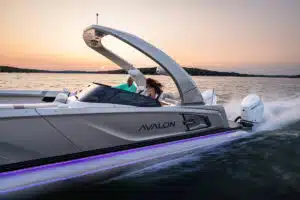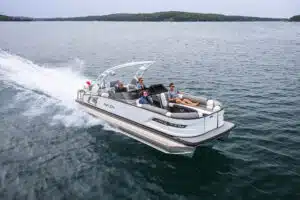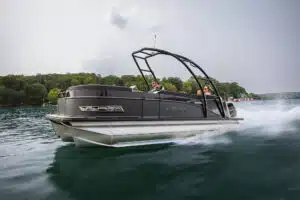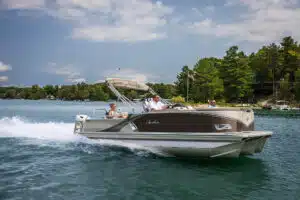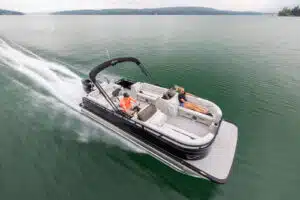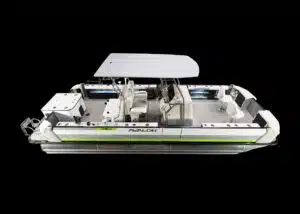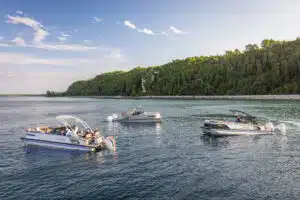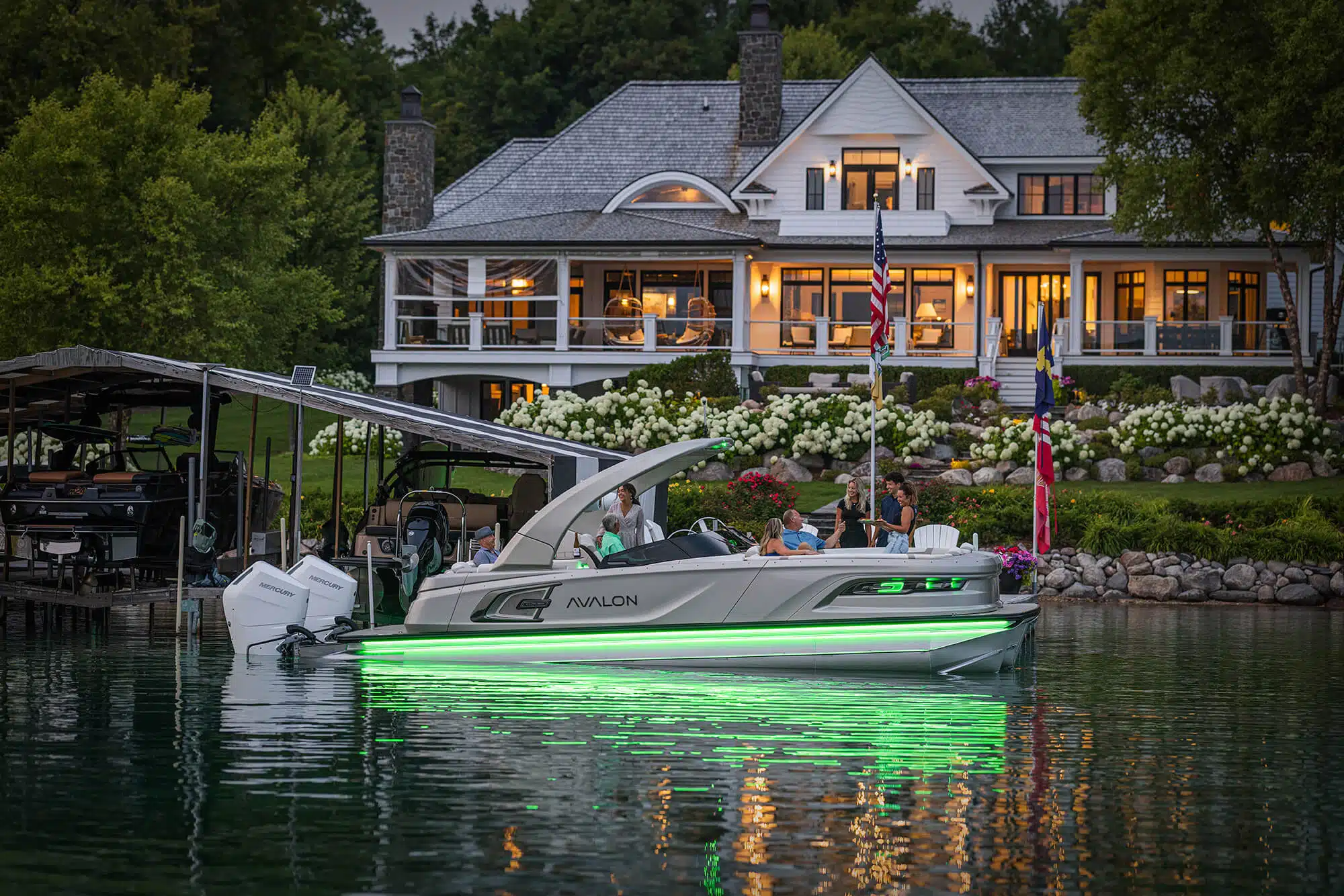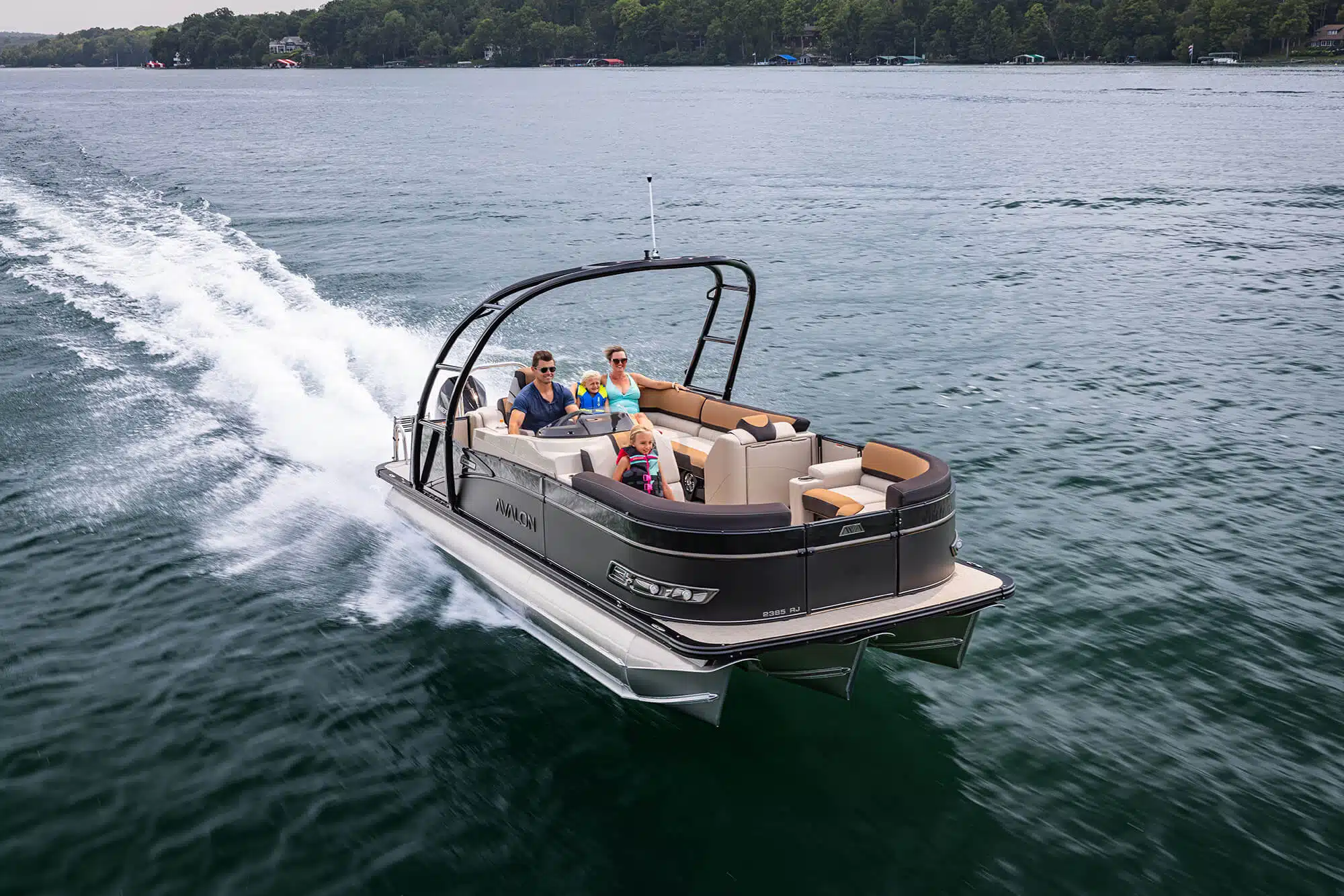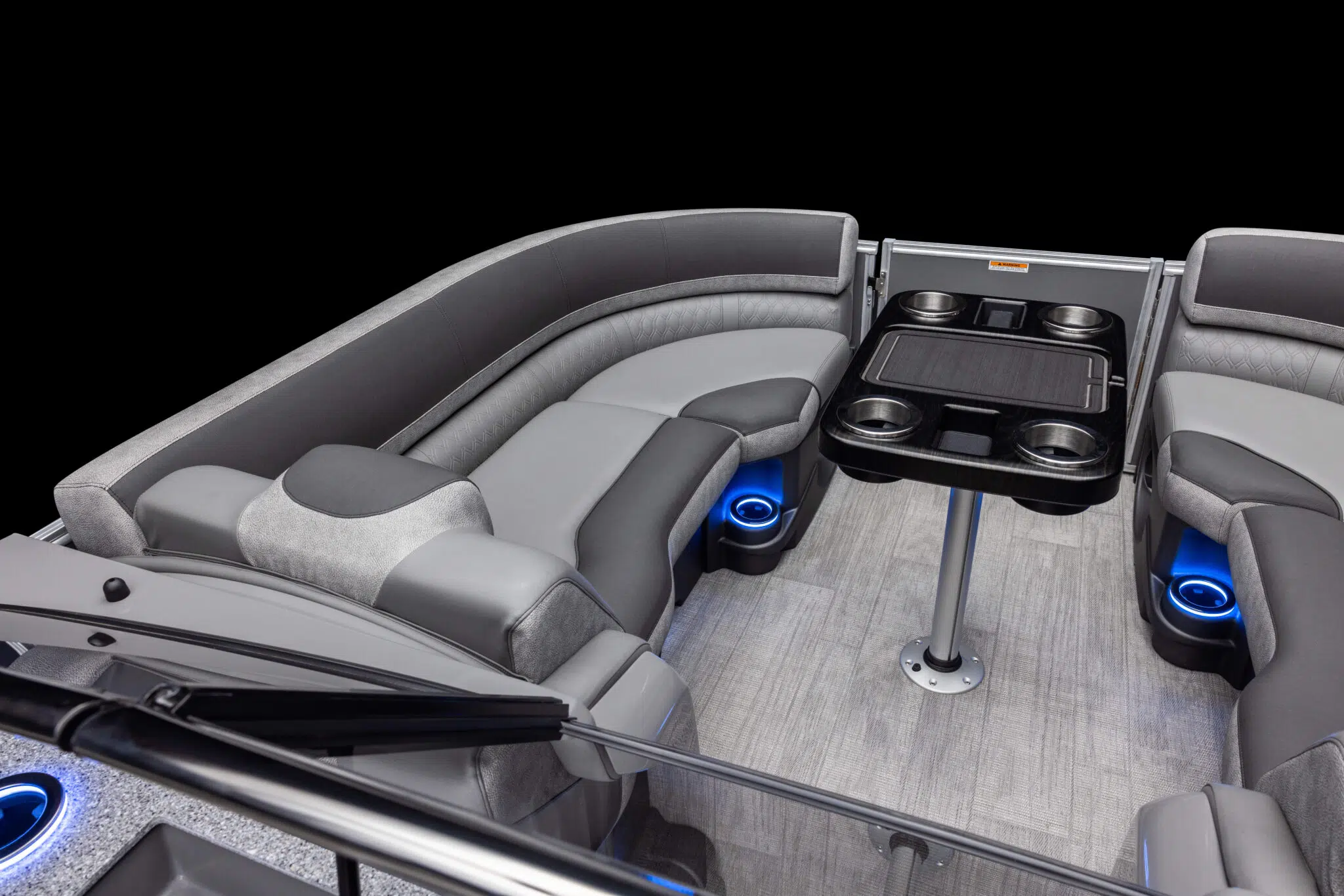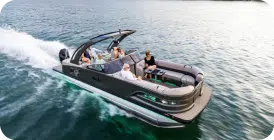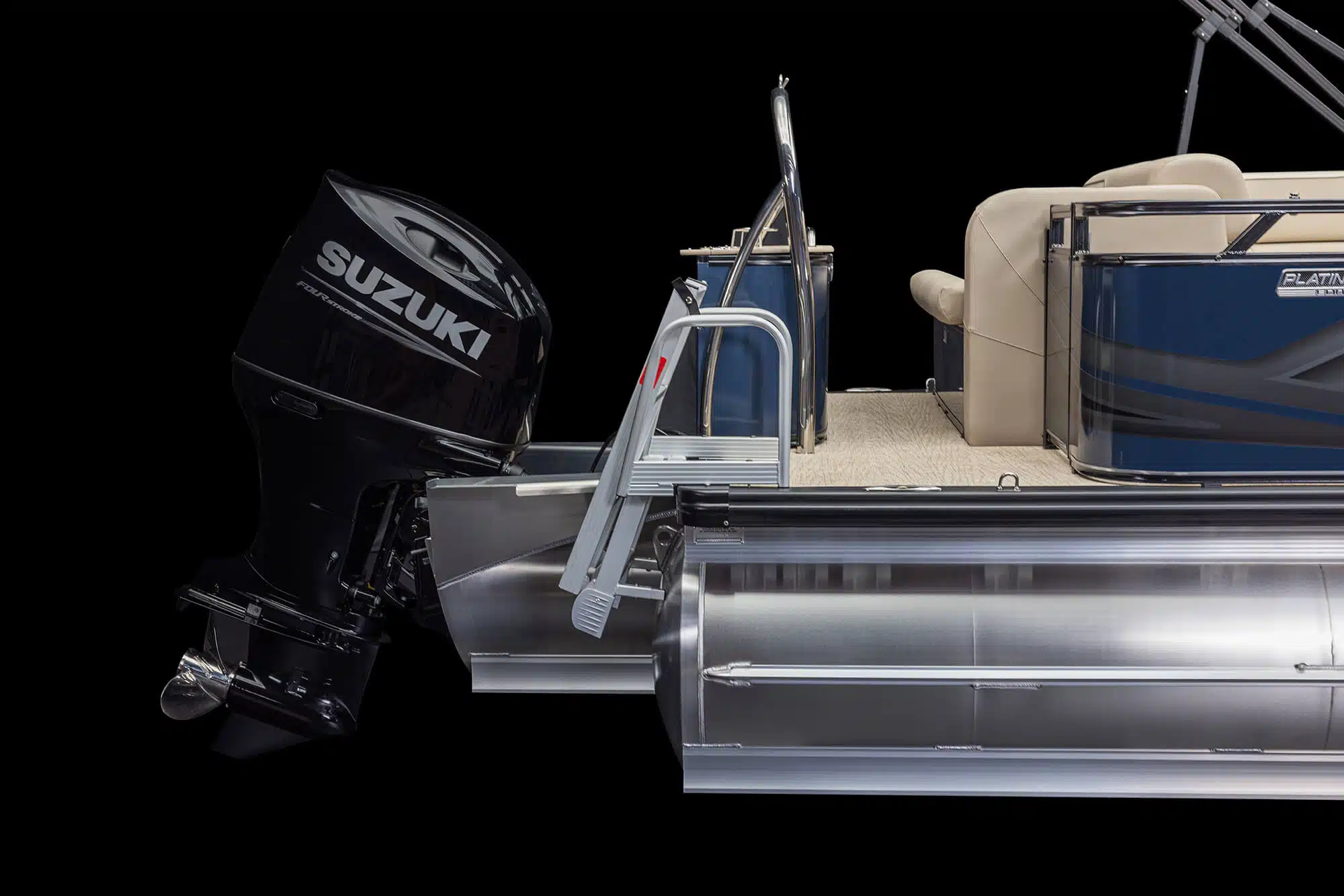Pontoon boats were not initially designed for the ocean, but with time the designs have changed into powerboats. Most people use pontoon boats for partying and sailing with family and friends. Before the design modifications, taking a pontoon boat out into the ocean was completely impossible.
So, can pontoon boats go in the ocean today? We can answer this for you.
Is Your Pontoon Boat Seaworthy?
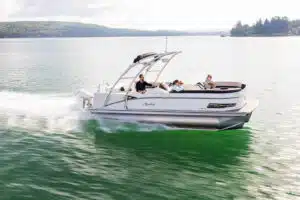
These boats are well-designed for saltwater lakes. Broadly speaking, a calm ocean isn’t too different. The problems come when you try sailing on rough seas or take your vessel far from the shore. There are also several design factors to consider before taking a pontoon boat in the ocean – we outline these below.
Construction
Construction is a crucial factor in determining when
can you take a pontoon boat in the ocean. Any vessel is likely to experience
wear and tear while on open water. The ability to withstand the rough waters
depends on how strong the block of aluminum used to make the boat is and
whether the framework is big enough for a big engine. Also, the bigger the
deck, the better the weight distribution, which keeps the pontoon safe in rough
waters.
Resistance to Corrosion
Ocean water is salty and likely to cause galvanic corrosion to a pontoon boat on ocean water. Knowing whether the metal used to make your vessel is safe from corrosion is essential.
A common way to avoid that is to ensure the pontoon on ocean water has a zinc bolt-on plate to protect other boat components from galvanic corrosion. As much as zinc is an easy target for corrosion, it also takes a long time to decay, making it a perfect choice for pontoon boats that sail in open salty water.
Proper Maintenance
You must ensure proper maintenance if you intend to take your pontoon boat on ocean waters. Clean it well and often check for loose fittings before and after taking it out on salty water. You should also ensure you rinse the salt after driving in salty water to avoid prolonged contact with the salt.
The vessel should also not stay on the salty water for so long unless it has anti-corrosion paint on the lower unit and the tubes. A powerful blast from the hose is the best way to rinse salt deposits from all parts of the boat after a trip to the ocean. Ensure you emphasize below the deck to keep your vessel safe from corrosion.
Features of the Vessel
Different pontoons have different features, affecting the vessel’s ability to sail in open water. Essential features include the size of the boat, horsepower, and thickness. The bigger and thicker the boat is, the better it will handle rough conditions.
The positioning of the center tube is also essential because the proper positioning will stabilize the boat in rough waters, giving you a quality ride. A pontoon boat with lifting strakes is also vital as it helps get the right degree of deadrise to simulate the hull.
Manufacturer Recommendations
If you’re wondering when can pontoon boats go in the ocean, the manufacturer’s instructions are your best starting point. The manufacturer will always give you instructions, guidelines, and recommendations. It is crucial to heed the instructions of the manufacturer to avoid putting yourself and your passengers in danger.
The manufacturer will also indicate the capabilities of the vessel. Instead of constantly wondering whether you can take your pontoon boat in the ocean, look at the manual from the manufacturer and see what they recommend in terms of usage.
Tips for Taking Your Pontoon Boat in the Ocean
Avoid Storms
Storms are especially dangerous for vessels not intended to sail in open water. They could destabilize and capsize smaller crafts. It is, therefore, crucial to check the weather before sailing your pontoon on ocean waters. You ought to know what the weather will be like for the period you intend to be at sea to plan.
Slow Down in Rough Waters

Sometimes you cannot escape rough boating conditions, even when you use apps to predict the weather. In such cases, you must know how to maneuver through rough waters to avoid causing fatal accidents. The first precaution is regulating your speed when you get to rough waters. That will help you stabilize and allow you to wait until the storm passes.
Observe the Passenger Capacity Guidelines
Every pontoon boat will come with a manual with the manufacturer’s guidelines on the acceptable weight capacity. It is essential to observe the weight requirements because extra weight could cause the vessel to capsize.
Inspect Your Vessel Before Sailing
Before you set out to the ocean, checking the boat’s condition thoroughly is crucial. Look for leaks, loose fittings, corroded parts of the vessel, and any other issues that could affect your safety. You should ensure that your boat has the capability of going in open water and that all components are safely positioned in their rightful place.
Carry Safety Gear
You never know what could happen in the open water. It is vital to always have safety gear with you. Carry lifeboats, life jackets, and other safety gear that could help you if you capsize. With a pontoon boat on ocean water, you hope for the best but prepare for the worst.
Maintain a Safe Distance Between You and Other Boats
Other vessels, especially bigger ones, will cause heavy waves when they pass next to your boat. Creating a safe distance between you and other boaters is essential to ensure they do not destabilize your boat when they pass by. You should also ensure you notify other boats of your presence through horns whenever they come too close.
Ensure Everyone Wears a Life Jacket
The passengers onboard your pontoon boat are your responsibility. Your priority should therefore be to keep them safe while on the water. Ensure that each one has a life jacket on in case you get to rough waters and the destabilization throws some off the boat. A life jacket is an essential safety precaution for a pontoon on ocean waters.
Communicate With Other Boaters While on the Water
You will not be alone in the ocean. There will be
other boaters with bigger or smaller boats than you. Creating a good rapport
with them is vital because they are your closest help while you are out there.
Communicate with them through horns to ensure they see your boat and can come
to your rescue if anything happens. It also shows courtesy to other boaters in
the water with you.
Avoid Shallow Areas
Shallow areas tend to have waves and rough waters. So, driving your pontoon boat in calm areas is essential. That is likely to be the deepest point of the ocean. Sailing along shorelines is risky and does not give you or your passengers a comfortable ride.
Know Your Boat and the Water
The one thing you should do before you take a pontoon on ocean waters is to familiarize yourself with your vessel. This is an advantage of buying over renting – A rental one might not give you the right features because most of them are basic in construction. Once you buy one, you’ll come to know your vessel inside-out.
You need to know how to operate the vessel and maneuver different situations before you decide to take the boat out for a ride with family or friends. Knowing the particular location you plan to sail in is also crucial because it helps you know which parts are likely to have rough waters and how to navigate through the waves.
Final Thoughts
Now that you have all that information you need, it’s time to invest in a carefully crafted pontoon boat from Avalon that you can drive in the ocean. Choose from our selection of pontoon boats now!

